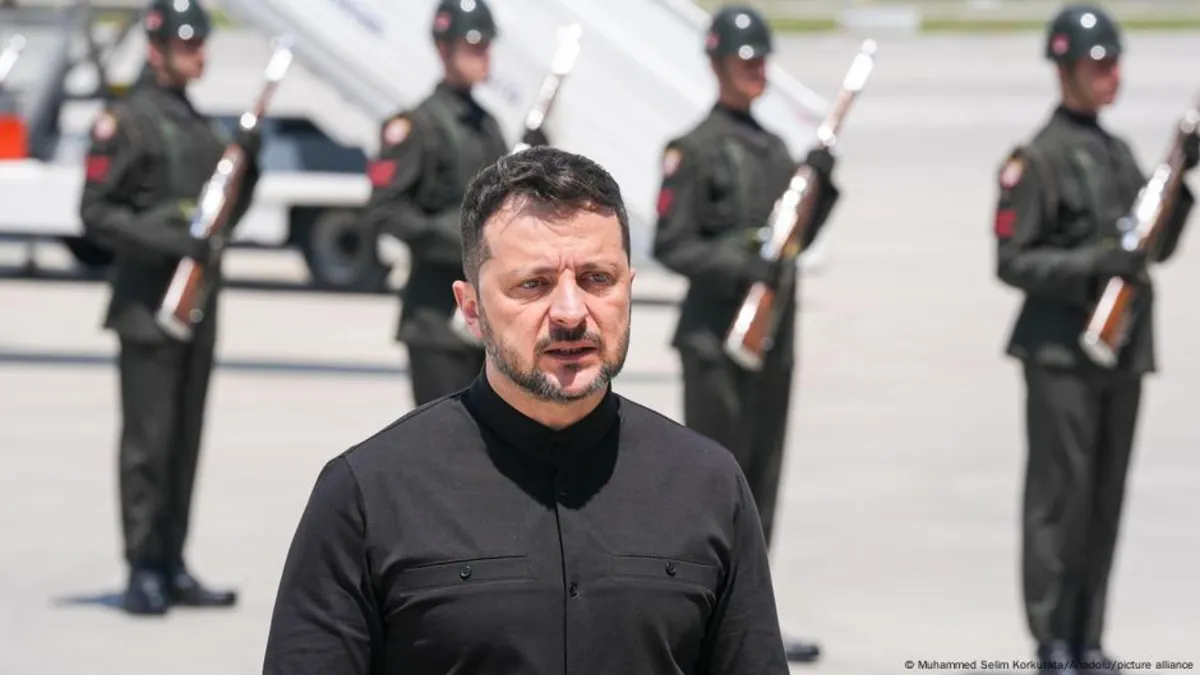
The ongoing conflict between Ukraine and Russia has reached a crucial juncture as Ukrainian President Volodymyr Zelenskyy criticizes the low-level Russian delegation attending peace talks in Turkey. Zelenskyy labeled the Russian representatives as "decorative," underscoring his desire for a meaningful dialogue to end the war. He had previously challenged Russian President Vladimir Putin to meet him face-to-face to discuss potential resolutions. This sentiment was echoed during Zelenskyy's visit to Turkey, where he is set to engage with Turkish President Recep Tayyip Erdogan.
Peace negotiations between Ukrainian and Russian delegations are scheduled to commence in Istanbul. However, expectations are tempered by Putin's decision to skip the talks. This absence raises questions about Russia's commitment to the negotiation process and the seriousness of its intentions. Zelenskyy has made it clear that Ukraine will evaluate the next steps in negotiations after assessing the Russian delegation's mandate and authority to make decisions.
In related news, former US President Donald Trump has indicated that he does not foresee any agreement between Russia and Ukraine until he personally meets with Putin. Speaking from Air Force One, Trump expressed his concern over the ongoing conflict, stating, "Too many people are dying." His remarks highlight the urgency and complexity of establishing peace in the region.
Experts have criticized Russia's approach to the peace talks, suggesting that it is employing familiar delaying tactics. Knut Abraham, a member of Germany's Foreign Affairs Committee, described the current situation as a "game" where Russia appears uninterested in genuine dialogue. Military expert Gustav Gressel echoed this sentiment, noting that Russia seems confident in its military strategy and is using time as a tool in negotiations. He emphasized the need for Europe to strengthen sanctions on Moscow to convey a serious stance against its actions.
The situation remains fraught, with recent incidents further complicating the atmosphere. Estonia reported that a Russian fighter jet violated NATO airspace while monitoring an oil tanker accused of defying Western sanctions. This act has raised alarms about Russia's readiness to protect its so-called "shadow fleet," which is believed to be involved in circumventing international sanctions.
During an informal NATO meeting in Turkey, Secretary-General Mark Rutte commended Germany for its plans to increase defense spending, signaling a unified front among NATO members in response to the ongoing conflict. He remarked that the "ball is now clearly in the Russian court," urging Moscow to take steps toward peace. This statement reflects the alliance's commitment to supporting Ukraine while pressuring Russia to engage constructively in negotiations.
As the peace talks in Istanbul approach, Ukraine remains cautious about the timeline and effectiveness of negotiations. Ukrainian officials clarified that no specific time has been fixed for the commencement of discussions, despite conflicting reports. The Ukrainian delegation, including key military and intelligence leaders, is prepared to engage in dialogue, but Zelenskyy has emphasized that any meaningful discussions require Putin's involvement.
The international community continues to closely monitor the situation, with France's Foreign Minister advocating for an "unconditional ceasefire" as a prerequisite for successful peace negotiations. Meanwhile, US Secretary of State Marco Rubio expressed Washington's eagerness for progress in achieving a lasting resolution to the conflict. The complexities of the situation underscore the challenges ahead as both sides navigate the path toward potential peace.